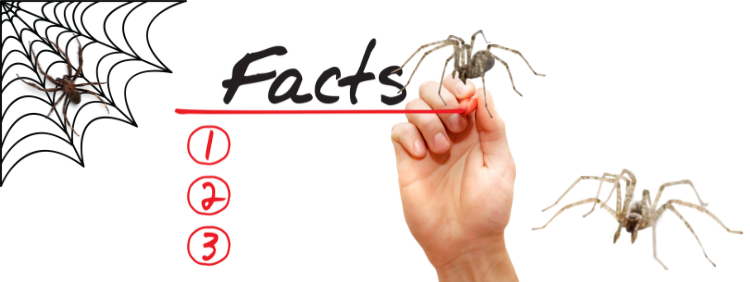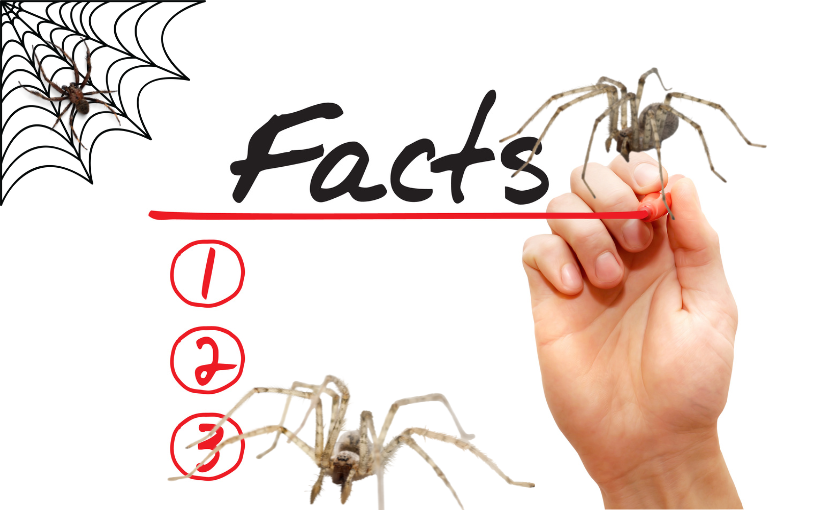
Most common house spiders are harmless to humans and can even be beneficial by eating other household pests. Nevertheless, arachnophobia, the fear of spiders, is one of the most common phobias, affecting between 3% to 15% of the population to some degree. These people may particularly benefit from professional spider removal.
Many of the attributes that make spiders frightening also make them fascinating. Here are some creepy but cool facts about this particular type of arachnid.
1. Living in Large Cities Can Make Spiders Bigger
People who are afraid of spiders tend to overestimate their size. The fear can exaggerate the threat in a person’s mind, and as a result, people describing the encounter after the fact reported the spiders’ sizes as being much bigger than they actually were in a controlled study.
On the other hand, another study showed that living in an urban environment actually caused certain species of spiders to grow much bigger on average. Not only did the spiders themselves become bigger, but they were also able to produce more offspring. A lack of predators and better ease at finding food was proposed as theories to explain why spiders in urban environments become larger and breed more prodigiously.
2. Female Spiders Sometimes Eat Their Mates
Black widow spiders are notorious for eating males after mating; it is part of the reason for their name. Black widows are not the only spider species to practice sexual cannibalism. The practice has been observed in other spider species subsequently dubbed “widow” species, such as the red widow and the brown widow.
It is not entirely clear why some spiders practice sexual cannibalism. It may be a case of mistaken identity, or the protein that the female derives from eating the male may give the offspring a better chance of survival. Research has also suggested that — among black widow spiders, at least — the practice may be less common in the wild than it is in captivity.
Understandably, the males of the widow species often try to escape their mates following copulation to avoid being eaten. However, redback spiders have been known to force themselves onto the fangs of their mates, essentially committing suicide. The reason for this seemingly counterintuitive behaviour is unclear, but it may help to improve mating success rates by allowing the males to deposit more sperm.
3. Spiders Can Adapt To Survive in Space
Approximately 10 years ago, an 18-year-old student in Egypt proposed a study to NASA to determine whether jumping spiders, which require gravity to catch their prey, could survive in the microgravity environment of the International Space Station. NASA accepted the proposal and brought a Johnson jumping spider to the International Space Station along with a supply of fruit flies with which to feed it. The spider successfully adapted to the lack of gravity and survived in space for 55 days. It died a few days after its return to Earth. The cause of death was determined to be natural, but no further specifics were given. The Johnson jumping spider generally has a life expectancy of about a year, and at the time of the spider’s death, its age was 10 months.
It is not only jumping spiders that can adapt to life on a space station. In 2011, two golden orb spiders were brought to the International Space Station for study. The spiders lived in conditions of humidity and temperature control, with changes in artificial light to simulate daytime and nighttime. On Earth, the species usually spins asymmetrical webs, but the specimens on the space station spun webs that were more circular. Being in space didn’t seem to affect their hunting ability.
Call Truly Nolen for Spider Removal
If spiders are making a nuisance of themselves in your home, you cannot fly to outer space to escape them. However, you can call Truly Nolen for pest control in Richmond Hill, which is proven effective.
